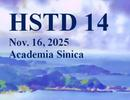Speaker
Description
The work presents a study aimed for the measuring of timing performance of thin planar pixel sensors (100 and 50 um) using the high resolution TimePix4 beam telescope for precise track-referenced measurements. The sensors were coupled to the triggerless TDCpix ASIC with 100 ps timestamping, originally developed for the GigaTracker of the NA62 experiment at CERN for use with 200 um-thick sensors. The devices were investigated at the CERN Super Proton Synchrotron beamline where the Timepix4 telescope provided particle tracks with a spatial resolution of about 2 um and timing resolution of about 90 ps.
Hardware-level integration of the hybrids with the telescope enabled timing synchronization between the telescope and TDCpix, allowing for precision pixel-level timing studies. For thin sensors, experimental runs were conducted with the device rotated relative to the beam trajectory effectively enhancing the deposited charge and enabling direct comparison with the 200 um-thick reference sensor.
The results show the dependencies of mean matrix timing resolution on sensor bias voltage, discriminator threshold, and incident angle for different sensor thicknesses. They demonstrate improved timing resolution in thinner detectors. Integration of data obtained from hybrids with the telescope tracks enabled the production of intra- and inter-pixel timing resolution maps. These maps reveal spatial non-uniformities in timing performance, correlated with the weighting field distribution, electrode geometry, and charge-sharing effects between pixels.

